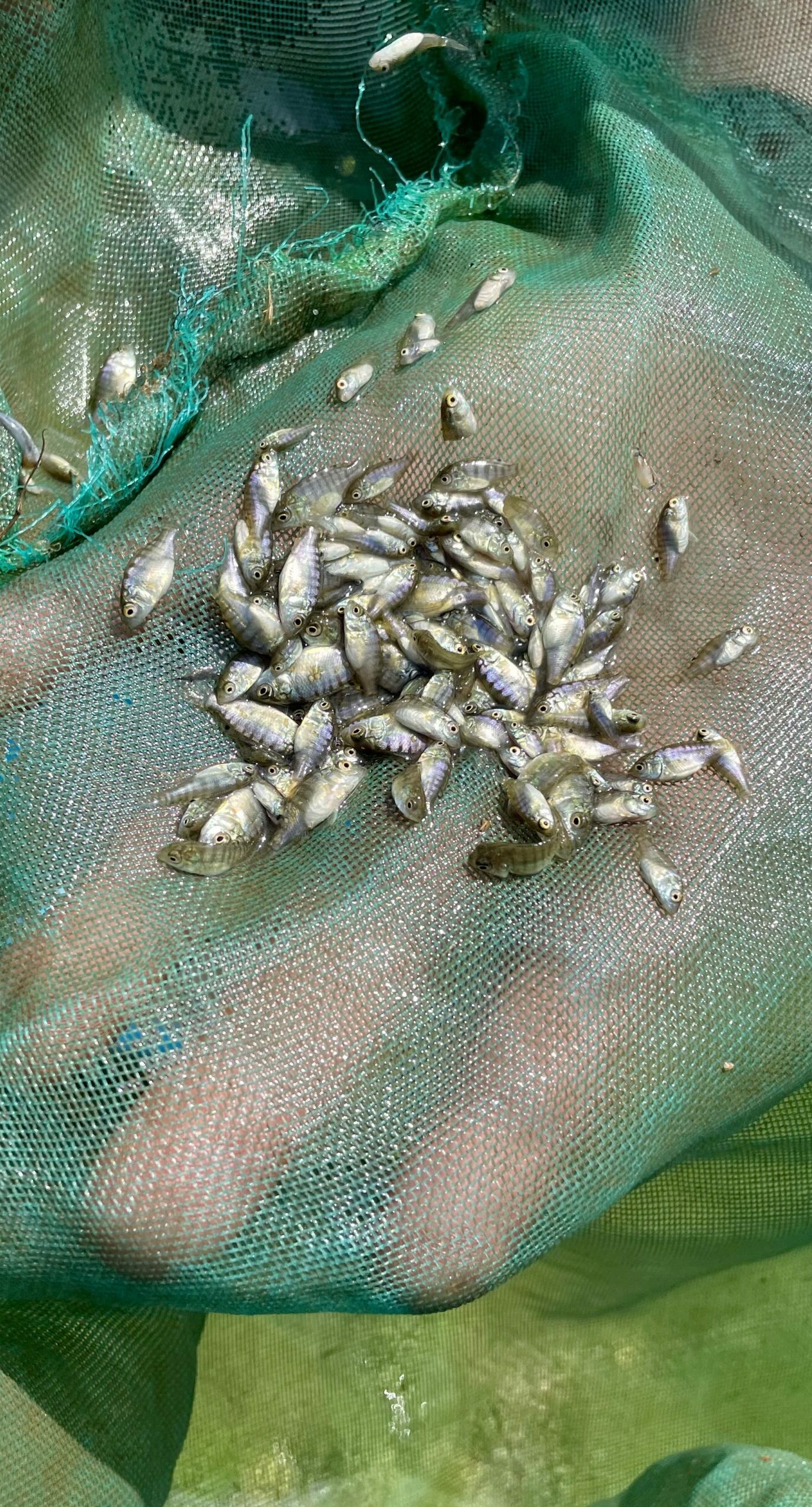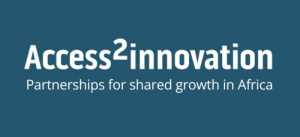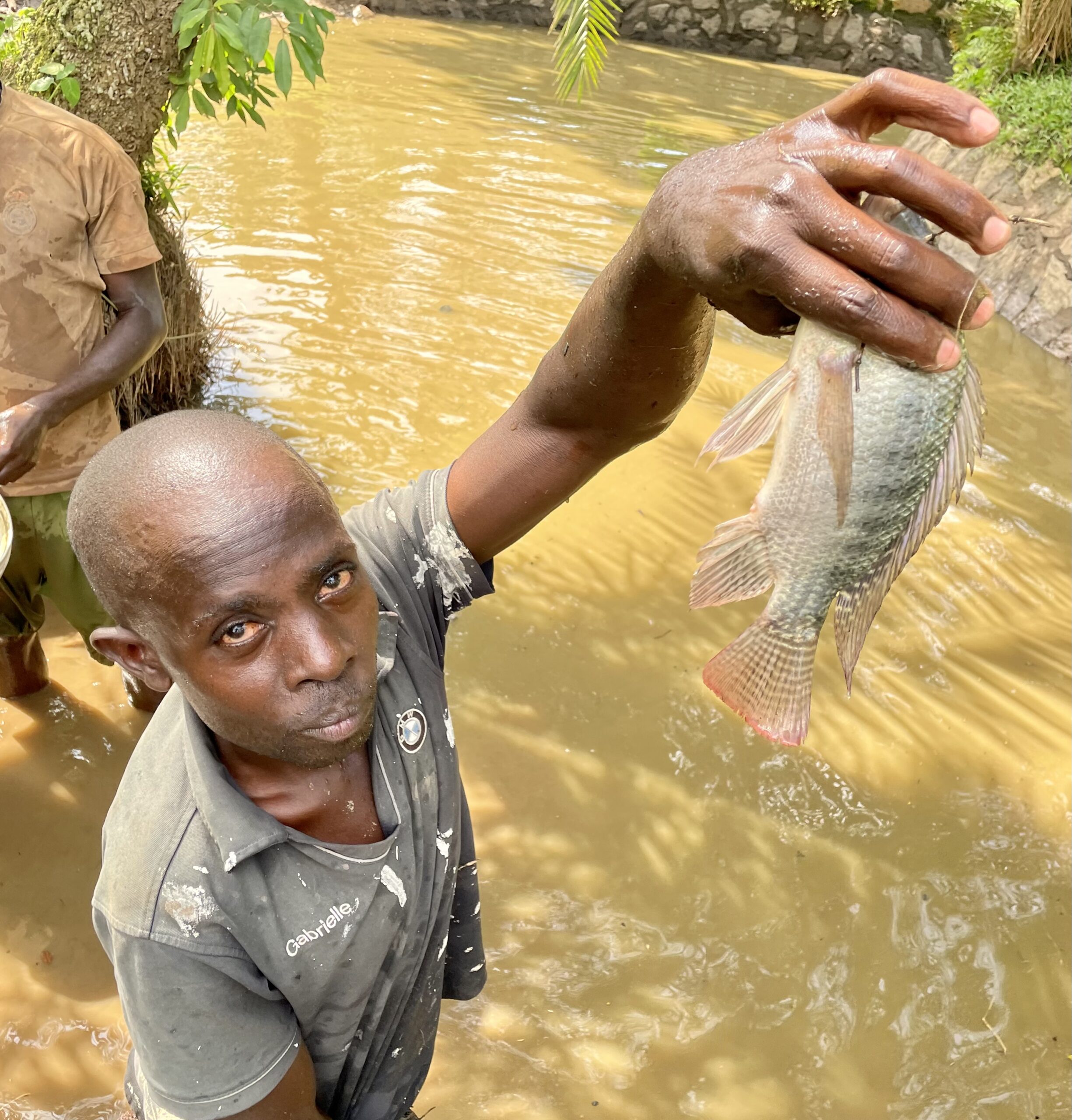
Our aquaculture project in Central Uganda is making promising strides in its efforts to support small-scale fish farmers while promoting sustainable food production. The initiative led by Access2innovation in partnership with Central Archdiocesan Province Caritas Association (CAPCA) in the Archdiocese of Kampala and Danish fish feed producer Aller Aqua.
Project manager Thomas Augustinus recently returned from Uganda with positive updates:
“We’ve mobilized five demonstration farmers who are testing high-quality fish feed and improved aquaculture techniques,” he explains. “These pilot farmers are key to the project’s “see-it-to-believe-it” approach: they demonstrate how better methods and materials can lead to healthier fish, improved water quality, and ultimately higher income.”
The training is comprehensive. More than 20 staff from CAPCA and Uganda’s district-level fisheries extension officers have already been trained in the techniques promoted by the project.
Better organized
“The project is important to local farmers because it builds their capacity through training, demonstrations, mentorship and coaching as well as exposure visits to better fish farms. The group dynamics training makes them better organized into aquaculture farmer groups able to advocate for their rights and friendly policies that favour green fish farming by engaging the local government and regional leaders through organized dialogue meetings,” explains project Coordinator Dr. Bugembe Richard from CAPCA (Caritas Kampala). He continues:
“The project is progressing well. A total of 100 fish farmers have been enrolled as direct project beneficiaries. These farmers rear catfish and tilapia in earthen fishponds ranging from 138 square meters to 250 square meters in area.
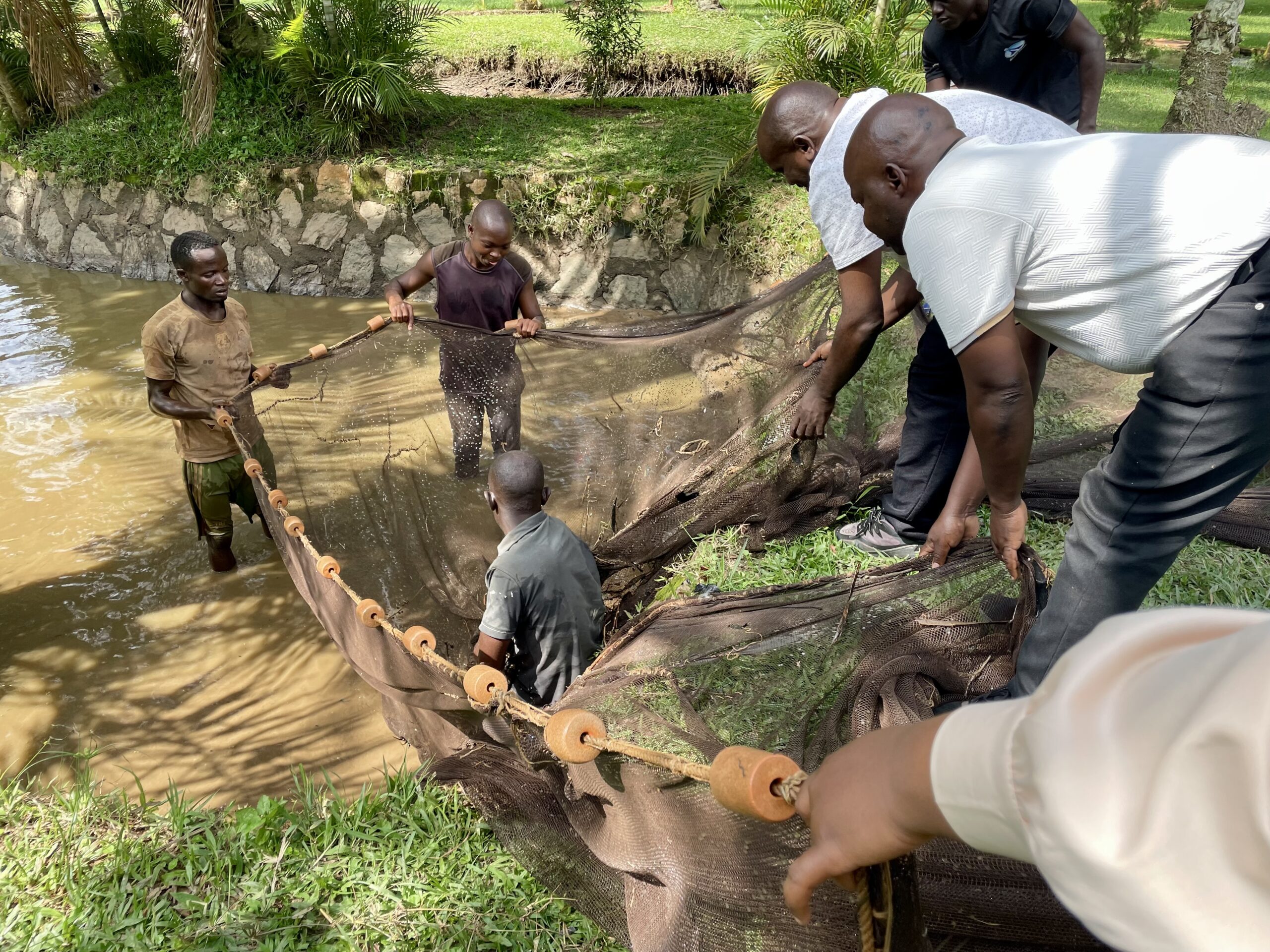
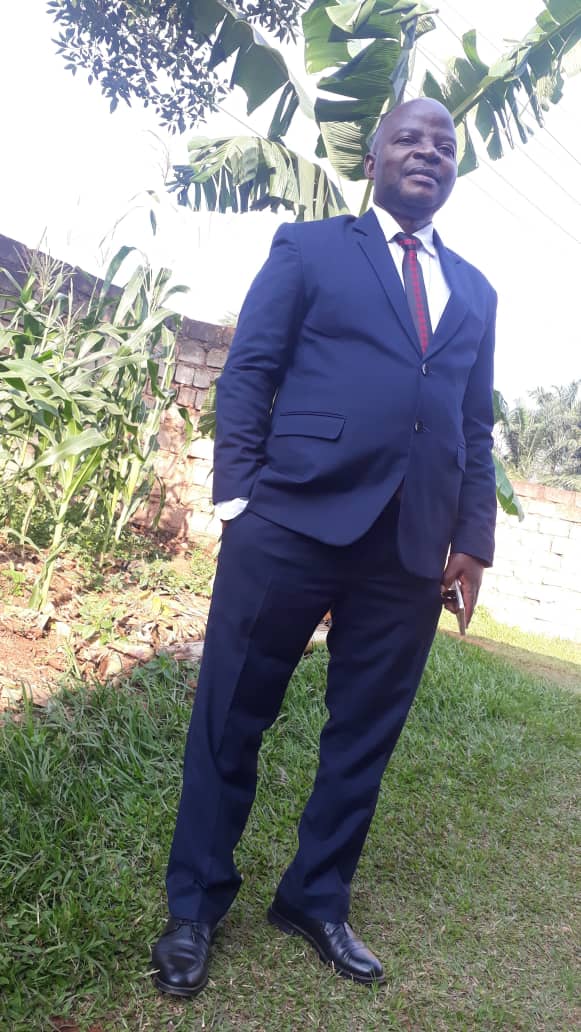
Dr. Bugembe Richard, Caritas Kampala
The local government leaders at sub county and district level are already engaged and two dialogue meetings between the local fish farmers and these leaders have been carried out to address the needs of fish farmers in the targeted project area. The identified needs include provision of quality fish feeds, quality fingerings and availing fish farmers with water quality monitoring multi-parameter meters to ensure a conducive environment for growth of fish in a pond set up. The project will continue supporting fish farmers to enable them to find solutions to these needs.”
Beyond fish farming
In addition to the demonstration farms, 100 farmers receive training in aquaculture, basic financial management, and advocacy—skills that go far beyond fish farming.
“By learning to organize and negotiate collectively, especially when buying fingerlings and feed, they can secure much better prices,” says Thomas Augustinus. “For example, buying a ton of feed together is far cheaper than buying 200 kilograms each.”
Sustainable Protein with a Climate Bonus
One of the key benefits of fish farming — especially when done with clean water and high-quality feed — is its low environmental impact compared to traditional livestock farming. Producing fish requires less land, less feed, and generates fewer greenhouse gas emissions. “It’s a much less polluting way to produce protein,” says Thomas Augustinus. “From a climate perspective, this is a smarter path forward for meeting local food needs.”
By introducing more sustainable aquaculture practices, the project not only supports income generation but also contributes to a greener food system.
Seeing is believing
A core part of the learning is understanding the value of using high-quality feed—even though it’s more expensive up front.
“Farmers naturally hesitate to invest in something that costs more. But once they see the growth and quality improvements, the benefits speak for themselves,” Thomas Augustinus notes.
Some participants already have old fishponds that have fallen into disuse. Others are starting fresh, digging new ponds from scratch.
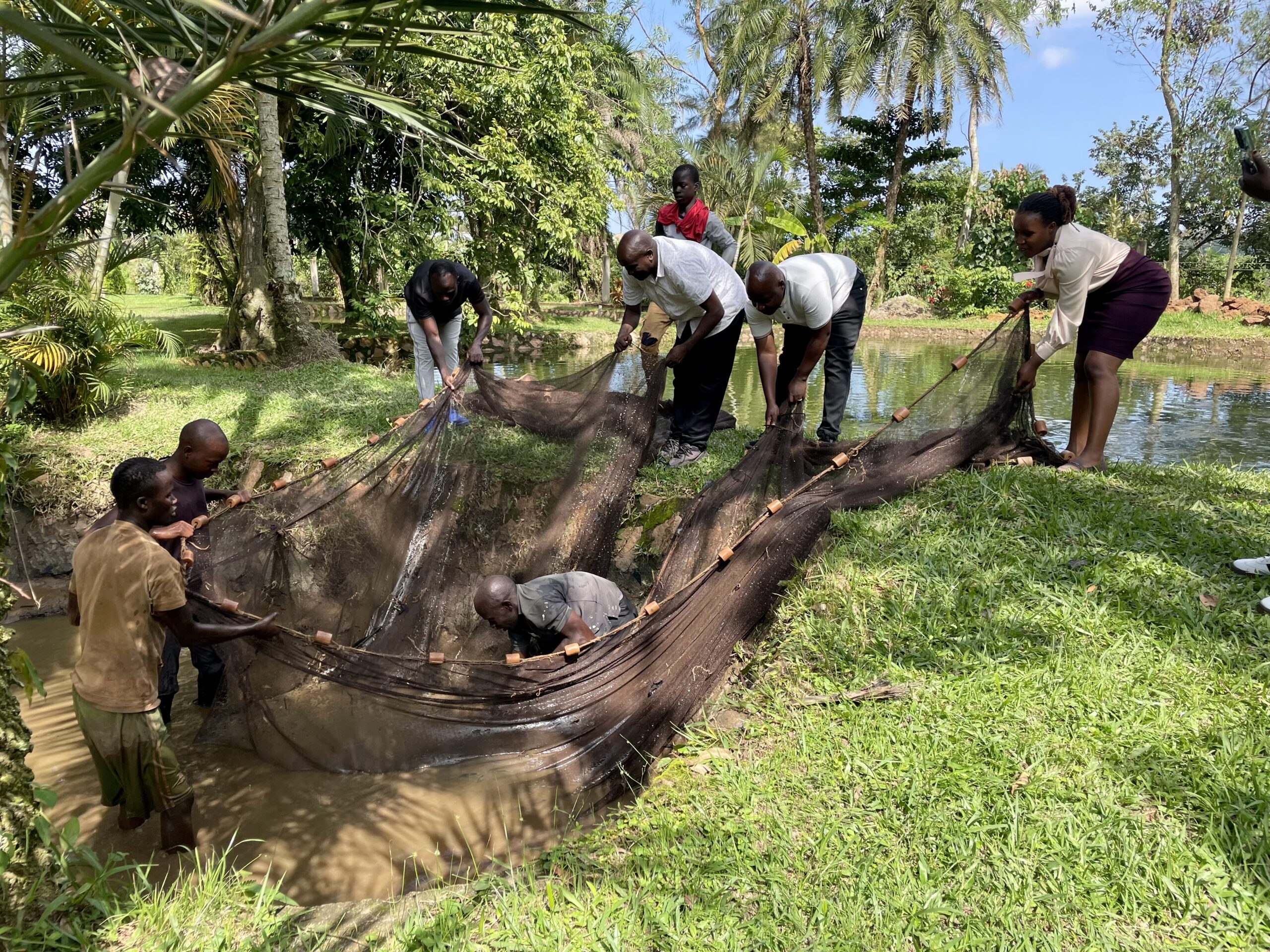
More tech introduced later
Longer-term, the team hopes to add even more technology to the mix — like solar-powered paddlewheels that help oxygenate the water. But for now, the focus is on building a solid foundation with strong farmer groups, well-functioning demonstration sites, and the right training.
“This project contributes to realization of our organizational goal and objectives hinged on economic empowerment of poor persons and upholding of their human dignity. It also boosts nutrition for both adults and children,” Dr. Bugembe Richard sums up.
The project, which runs until July 2026, is funded by CISU (Civil Society in Development). That is Denmark’s largest civil society platform, which supports efforts to strengthen grassroots organizations in the Global South.
Facts about the Project and Its Partners
The project, which runs until July 2026, is funded by CISU (Civil Society in Development). That is Denmark’s largest civil society platform, which supports efforts to strengthen grassroots organizations in the Global South.
The initiative, officially titled Aquaculture and Advocacy for Green Fish Farming in Central Uganda, aims to help small-scale fish farmers organize, train in sustainable methods, and gain a stronger voice in dialogue with local authorities.
By focusing on environmentally friendly techniques and collective advocacy, the project not only strengthens individual livelihoods but also promotes long-term food security and climate-conscious farming. Producing fish generates far less pollution and greenhouse gases than livestock farming, making it a more sustainable source of protein.
The project is a partnership between three organizations:
- Access2innovation (Denmark) brings together businesses, NGOs, and knowledge institutions to co-create sustainable solutions in developing countries.
- CAPCA (Caritas Kampala) is a faith-based development organization working to reduce poverty through improved agricultural productivity, farmer cooperatives, and policy advocacy.
- Aller Aqua is a global leader in fish feed production with more than 60 years of experience. Their high-quality feeds are developed through rigorous research and are exported to over 70 countries.
With these combined forces, the project is not just cultivating fish. It’s cultivating opportunity, empowerment, and environmental care.
